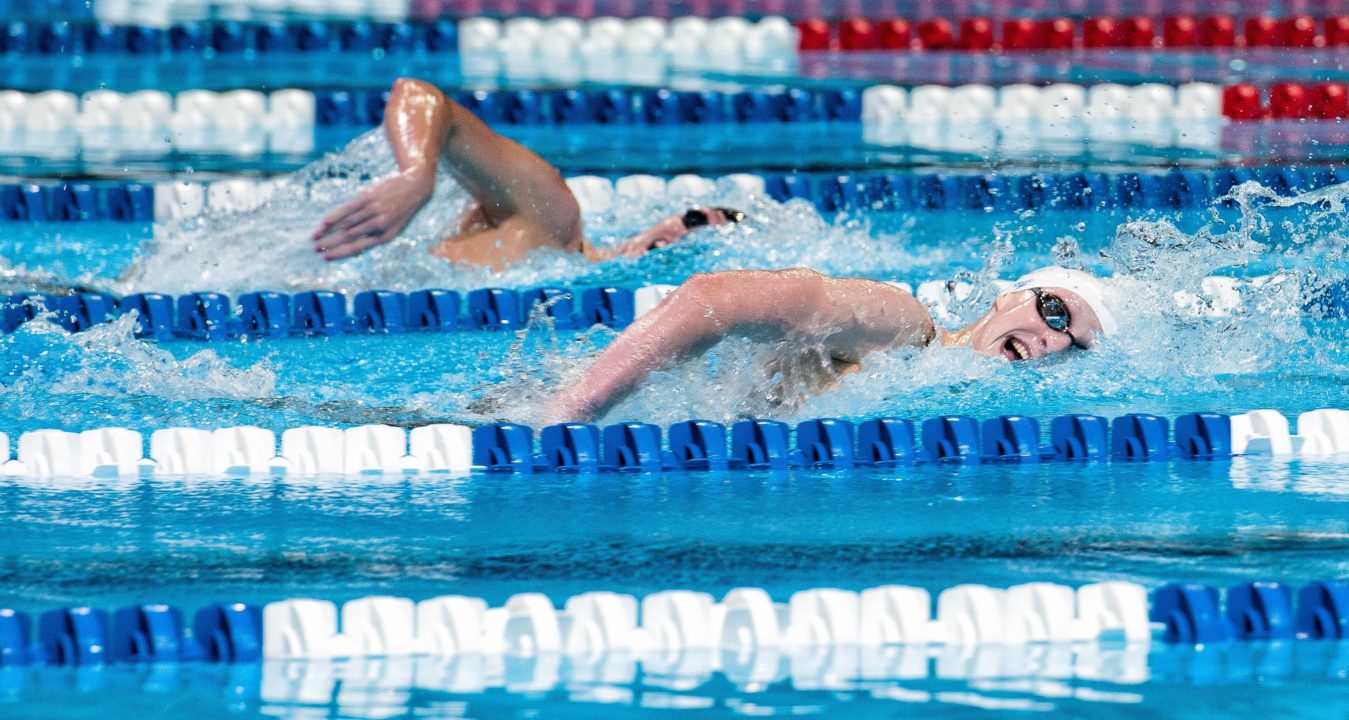Today marks the 100 year anniversary of women being able to take part in competitive swimming. On this day in 1914, the Amateur Athletic Union (AAU) announced that women could now partake in swimming at sanctioned competitions.
Following this announcement, the 1916 Olympics were cancelled due to the first World War,but following that were the 1920 Olympics where the swimming community got to see women take part in the Olympic Games in the pool for the only the second time. Women contested three events as opposed to the seven the men swam.
At that Olympics the United States won all three events when Ethelda Bleibtrey won the 100m and 300m freestyles as well as taking part in the winning 4x100m freestyle relay, making her the first female multi-olympic gold medallist swimmer.
Since then, the impact women have had on the sport has been great, truly growing the sport to what it is today. Swimmers like Debbie Meyer, Janet Evans, Natalie Coughlin, and Missy Franklin just to name a few have acted as role models for the younger generation of females.
Many sports are completely dominated by males; sports like hockey, basketball, and football where males get the spotlight. Swimming has equal showing of female and male athletes, making it one of the few sports where young girls can really look up to athletes, and be inspired to compete at their level.
Since then, the sport has clearly developed to the point where women and men share equal coverage and programs at high level competitions besides the fact that women swim the 800m freestyle compared to the mens 1500m freestyle at the Olympic games. As well, there has been a huge impact by women in college swimming.
Click here to read the article announcing this news from the New York Times in 1914.

I crunched some numbers: here’s what I found:
using the average swimming pace of the top 8 swimmers in the 2012 Olympics, the 2012 European champs, and the 2013 world champs (for the women’s 1500, I substituted the 2011 world champs for the Olympics)
the average pace of the men’s 1500m was 96.04% of the men’s 400m pace
the average pace of the women’s 1500m was 95.49% of the women’s 400m pace
the average pace of the women’s 800m was 97.27% of the women’s 400m pace
I guess I was wondering if the reason women did the 800 was that they could hold a pace that was closer to their 400m pace relative to the men. But i guess there… Read more »
“Today marks the 100 year anniversary of women being able to take part in competitive swimming.”
No.
Today marks the 100 year anniversary of women being able to take part in USA competitive swimming.
Accuracy, guys. Accuracy 🙂
Right on, JG. No matter what anyone says about the 1500 not being a part of the Olympic program for women, it is wrong. Tradition has nothing to do with it. Dump the 800 and bring equality into the pool. Hell, it took until 1986 for the 4X2 to FINALLY become a sanctioned event for women in the World Championships and all the way to 1996 before being included into the Olympic Games.
Lane Four I agree… but why dump the 800. I firmly believe that the 1500 should be in addition to the 800 and as long as I am at it the NCAA D-1 should have the 1000 as well as the mile.
I agree withyou, SWIMDAD. The only reason I didn’t state what you did was (unless the IOC suddenly becomes an enlightened bunch of people), they will never agree to adding more events onto the program (although they should). If it was for financial reasons, then they would be lying through their teeth. The amount of $$$$ the IOC has in their bank accounts is enough to make you choke.
Why do you think the IOC should add the 800 to the program?
Why? The 1000 is nearly identical to the 1650 (energy systems wise, the pacing and training is virtually identical, level of boredom increases slightly). Should we add a 75 to bridge the gap for 50 and 100 swimmers, no. 50-100-200-400/500-1500/1650 are the only freestyle events necessary. 50s of strokes offer much greater variation in terms of competitor field, i.e. anyone who can swim the 1500 can swim the 800 but the 50s and 100s are not interchangeable always.
The 800 and 1500 are two totally different races. Take it from a distance swimmer, pacing and how you approach the race are different.
Track and Field has the 800 AND the 1500. Plus Sean Justice is absolutely right.
And it would only be six more years for the right to vote…
And they are still too fragile for the 1500 mtrs even though all 3 medallists in 2013 were way way ahead of Mike Burton’s Olympic world record swim of 1972.
Totally agree with you on that comment. As a former distance swimmer (back in the 80’s), it always drove me nuts that the 1500 was not an Olympic event because we were just to “fragile”. And, of course, that philosophy still has not changed. The good ole boys club needs to get a grip and realize that women are much tougher than men (sorry guys!).
I don’t think it’s had anything to do with perceptions of fragility. At least anymore. Both men and women do the open water 10K after all.
I agree with Lane Four that they should dump the 800 in favor of the 1500. They won’t add more events as long as there’s the perception among the general public that there are way too many events as is (I hear that from my non-swimming friends and colleagues).